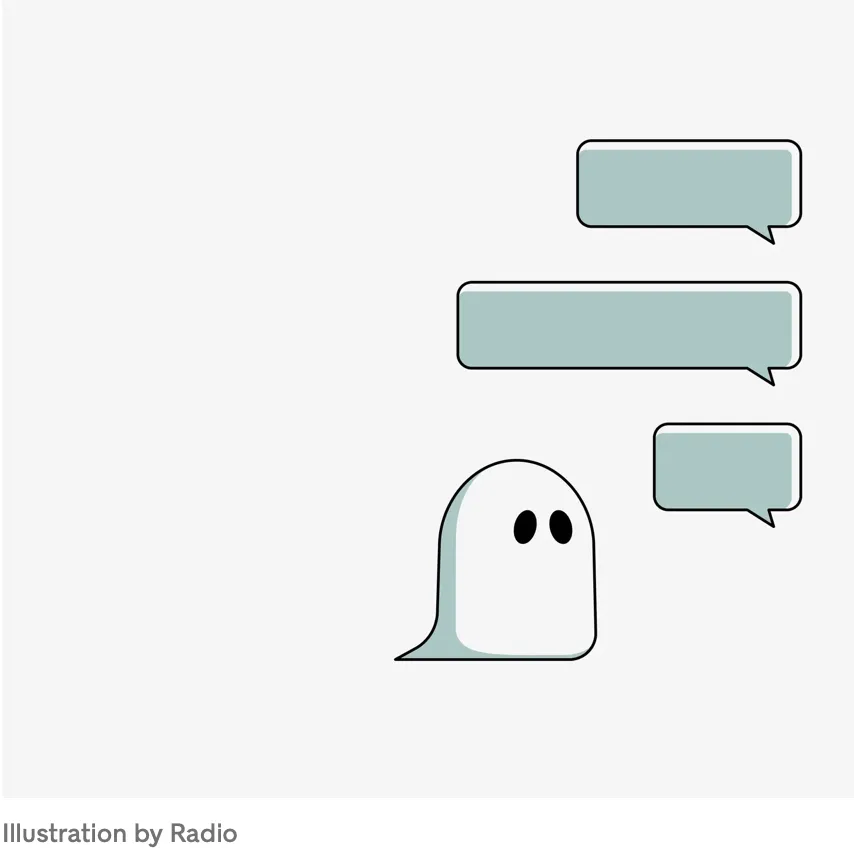Empathy is the cornerstone of our practice.
Visit our Locations
1124 US Highway 202 Suite B10 Raritan, NJ 08889
953 US highway 202 N Branchburg, NJ 08876
Give us a Call
Send us a Message
Opening Hours
Mon - Friday:
8AM - 9PM
Clinician Blog Posts

Our Ghosts from Being Ghosted: Coping with the Ambiguous Loss of a Loved One
Our Ghosts from Being Ghosted:
Coping with the Ambiguous Loss of a Loved One
Christie Carrera, LCSW, MSW – Vice President of ANWC&P, Clinical Supervisor, and Psychotherapist
‘Forever’ is a word that is inherently contradictory; it implies that there can be an enduring ‘always’ in what is limited by mortality. Perhaps this is precisely why we use forever so often in the context of relationships, to assert the impossible notion that we will truly be together always. Forever is a romantic concept; when your loved one says, “I will love you forever,” or “I will never leave you,” these promises are certainly impossible to uphold, yet as humans we typically long to hear them. We seek the security and adoration behind romantic vernacular and the promise of a fictitious ‘always,’ so that we may believe that we’ll never be alone. We are social beings, we rely on one another, and the idea of facing the infinite unknown becomes just a little less frightening with the illusion of someone ‘forever’ by your side.
But what happens to us when someone promises forever, perhaps a lover or a best friend, and then ghosts us? Psychology Today defines ‘ghosting’ as: “…abruptly ending communication with someone without explanation,” (Ghosting, 2022). As an example of this, I think of a former male client clutching at his chest in visible pain; the overstimulated vagus nerve deceiving him into thinking he can feel his heart actively breaking inside his chest. He reported that his physical pain was due to his girlfriend abandoning him without explanation before asking me, “How could she just leave me like this?” How do we go from ‘forever,’ ‘always,’ ‘my ride or die,’ to a behavior as callous as ghosting? How is it detrimental to our mental health? And finally, how do we live with it?
Ghosting can lead to the grieving experience of what is known as Ambiguous Loss. In Pauline Boss’ book Ambiguous Loss: Learning to Live with Unresolved Grief (1999), she wrote extensively about the concept of ambiguous loss and provided suggestions on how to cope with it. This pre-dates the more modern concept of ghosting, but her theories are certainly still applicable – perhaps even more so than before. Ambiguous loss is exactly that: loss that is uncertain, unclear, and which causes confusion paired with ongoing distress for as long as the circumstances surrounding the loss remain unresolved.
The ambiguity in the case of ghosting usually cycles back to the main question of how - how can someone who claims to love, value, or cherish you engage in what is perceived as a callous act? There are a multitude of reasons, each individualized and unique to the specific person. There are some general concepts that can be attributed to certain instances of ghosting, for instance the avoidance of conflict and pain. Some people are wired to avoid situations they might perceive as stressful or distressing, so they ghost to avoid having a conversation altogether. Another simpler explanation could be fear of facing the individual they want to sever ties with, so they don’t bother at all.
When my client had asked me how his girlfriend could have done that to him, that wasn’t even the hardest question. The hardest question came later: “Is she ever coming back?” After spending countless sessions together processing what happened and his feelings throughout his grieving process, my response was finally, “Do you even want her to?”
The ability to mourn and heal effectively requires a high degree of acceptance and understanding, as well as willfully choosing to let go. At a certain point, you could spend ‘forever’ thinking through each variable and wondering how or why someone could do this to you. But the hard truth is that by doing that, you are wasting more time on someone who remains undeserving of it, whatever their reasoning may have been. The longer you spend seeking understanding, ruminating over what could’ve happened differently, the more of yourself and your mental health you must sacrifice for a potential explanation.
How do you deal with it?: You stop. Stop sending messages and letters and posting Instagram or Snapchat stories hoping that the person who ghosted you will see it. If there is a part of you that is afraid that the person who ghosted you doesn’t know how it made you feel – believe me, that is almost impossible. They know. For whatever their reasons were, they know how it made you feel, and they still haven’t come back or apologized.
When someone ghosts you, they are acting solely in their own best interests and choosing themselves. Whatever their reasons, they could have provided them to you and given you the opportunity for catharsis and a healthier goodbye to set you up for more success in moving on. In denying you that opportunity, they instead subjected you to the confusion and distress linked to ambiguous loss. Just because this person didn’t choose you doesn’t mean you can’t.
Choose yourself. Expel the ghost.
References
Boss, P. (1999). Ambiguous loss: learning to live with unresolved grief (1st ed.). Harvard University Press.
Ghosting. (2022). Psychology Today. Retrieved September 23, 2022, from https://www.psychologytoday.com/us/basics/ghosting
Accepted Insurances





Visit our Location
1124 US Highway 202 Suite B10 Raritan, NJ 08889 and at 953 US highway 202 N Branchburg, NJ 08876
Give us a Call
Send us a Message
About Us
We offer counseling and psychotherapy in New Jersey, Pennsylvania, and New York.
Opening Hours
Monday - 8AM - 9PM
Tuesday - 8AM - 9PM
Wednesday - 8AM - 9PM
Thursday - 8AM - 9PM
Friday - 8AM - 9PM
Saturday - CLOSED
Sunday - CLOSED
© Copyright 2022 A New Way Counseling and Psychotherapy LLC| All Rights Reserved
Schedule your next






